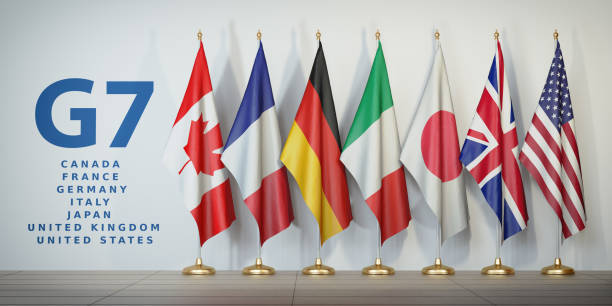
Italy is set to preside over the G7, which includes the United States, Japan, Germany, Britain, France, and Canada, throughout 2024. Italy’s priorities will expectedly include the ongoing conflict in the Middle East, climate change, development in Africa, engagement with China as well as the need to regulate Artificial Intelligence.
During its G7 presidency, Italy plans to host 20 ministerial meetings, commencing with a three-day gathering from March 13-15 focusing on industry, technology, and digitalization. This inaugural meeting will shed light on the rapidly evolving AI landscape. Prime Minister Giorgia Meloni has already emphasized that the challenges posed by AI will be a central theme, dedicating a session to the topic during the June summit in Puglia. Italy aims to scrutinize the impact of AI on jobs and inequality while establishing “ethical guardrails” for the technology’s development. Additionally, Rome will propose the creation of a steering committee to enhance G7 coordination on AI. There seems to be a general consensus among G7 leaders on AI-related issues.
Furthermore, it is rumoured that another key issue will be the importance of fostering economic development in Africa and addressing the issue of illegal immigration. This aligns with Prime Minister Meloni’s domestic priorities, reflecting a commitment to fulfilling electoral promises made in 2022 regarding the control of migrant flows. On the other hand, despite the need to acknowledge the challenges posed by China, it is unlikely that leaders at the G7 will want to exacerbate tensions and to pose concrete obstacles to China’s growth, especially considering the currently very fragile state of the US-led world order.
Most importantly, the war in Ukraine, a focal point in the last two G7 presidencies, will remain a major consideration. Georgia Meloni is expected to take on the challenge of countering the prevailing narrative that Russia is gaining ground in Ukraine and that Western resolve in the conflict is weakening. While acknowledging recent delays in delivering much-needed arms and funding to Ukraine due to political wrangling in Washington and Brussels, it is still of vital importance for G7 leaders to demonstrate steadfast support for Kyiv and “change the narrative on Ukraine,” pointing out that Russian President Vladimir Putin has suffered significant setbacks in terms of financial, military, and diplomatic influence since the invasion.
Giving up on Ukraine at this point would mean to embolden Russia and its allies, show overall weakness and lack of commitment and nullify the efforts made and the money invested over the past two years. Importantly, it would also mean to exacerbate an already growing distrust towards the West. Those who are willing could find a few occasions in which the West has emboldened other countries to engage in wars or “resistance” by promising its support only to then withdraw it once it was not able to win. The symbolic importance of the Western allies doing the same in their own region risks irreversibly damaging their reputation and authority on the international stage. As a result, although Western leaders’ priorities might have changed in the face of new conflicts and internal turmoil, it is fundamental for them to take the opportunity provided by the G7 to revive the support for Ukraine. Italy, with Georgia Meloni as Prime Minister, is well placed to lead in this matter giving her long-standing support for Ukraine and for a collective NATO response to counterbalance Russian and Chinese growing influence.
By The European Institute for International Law and International Relations















